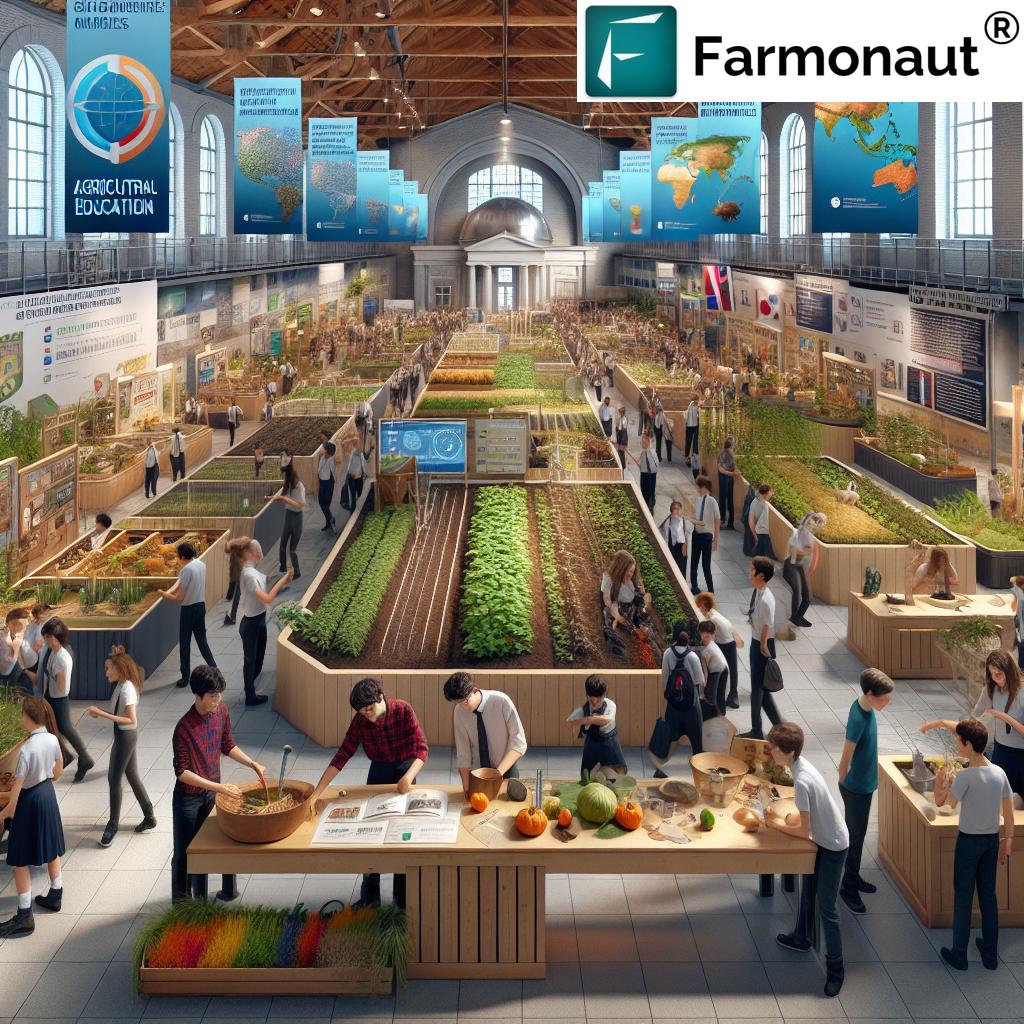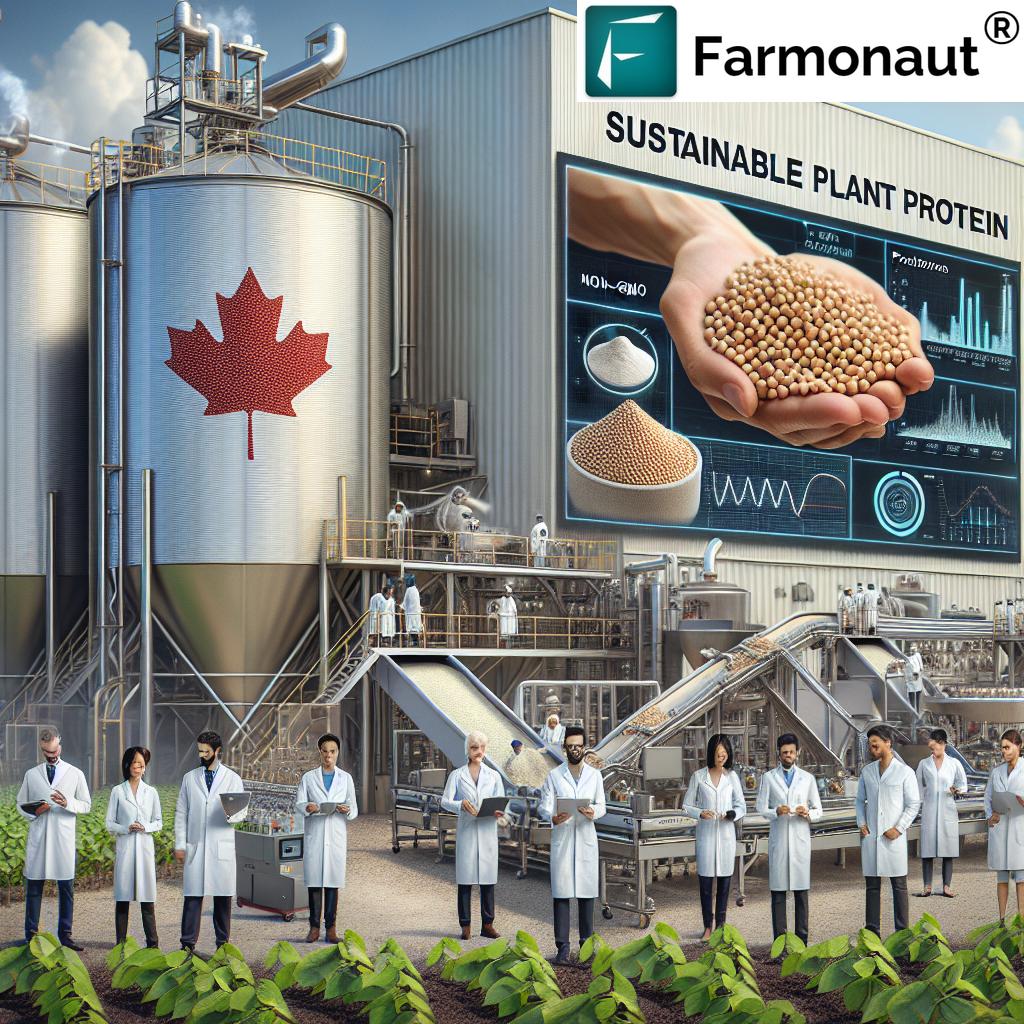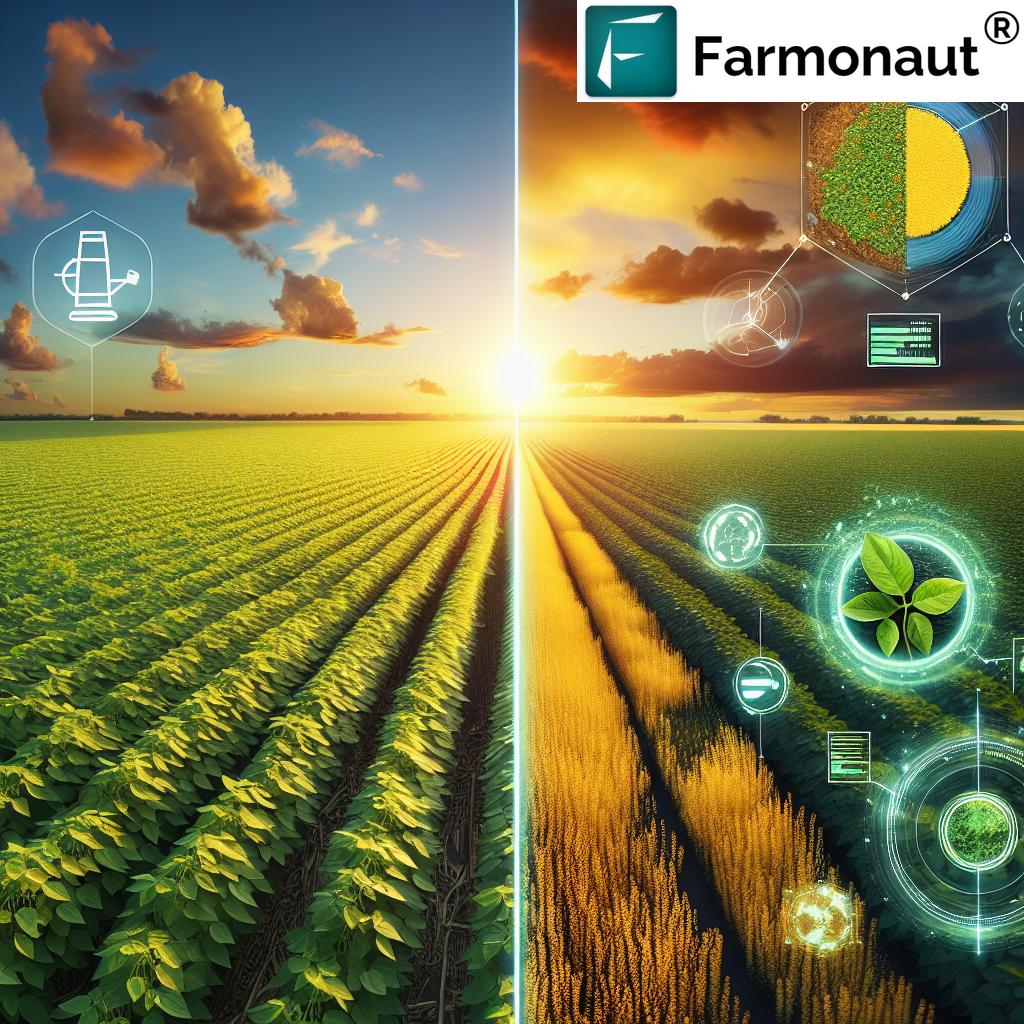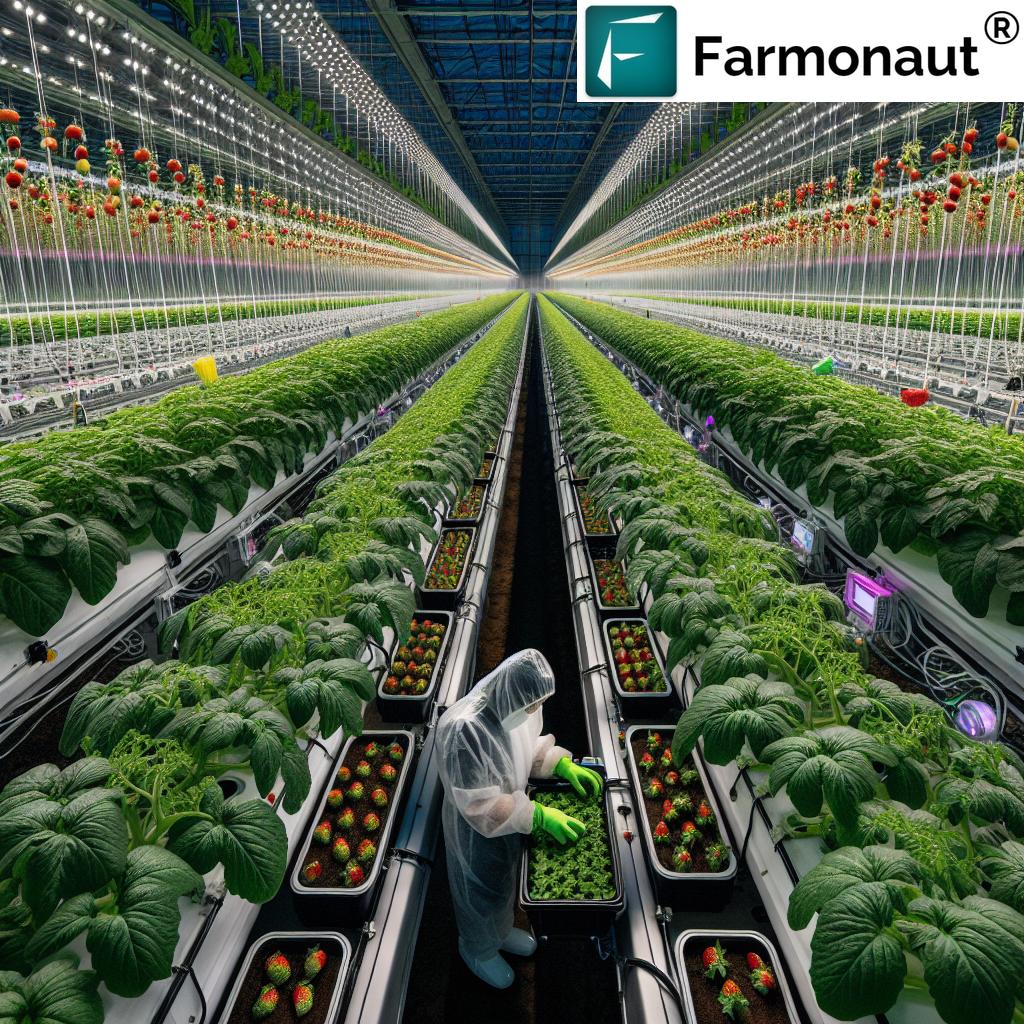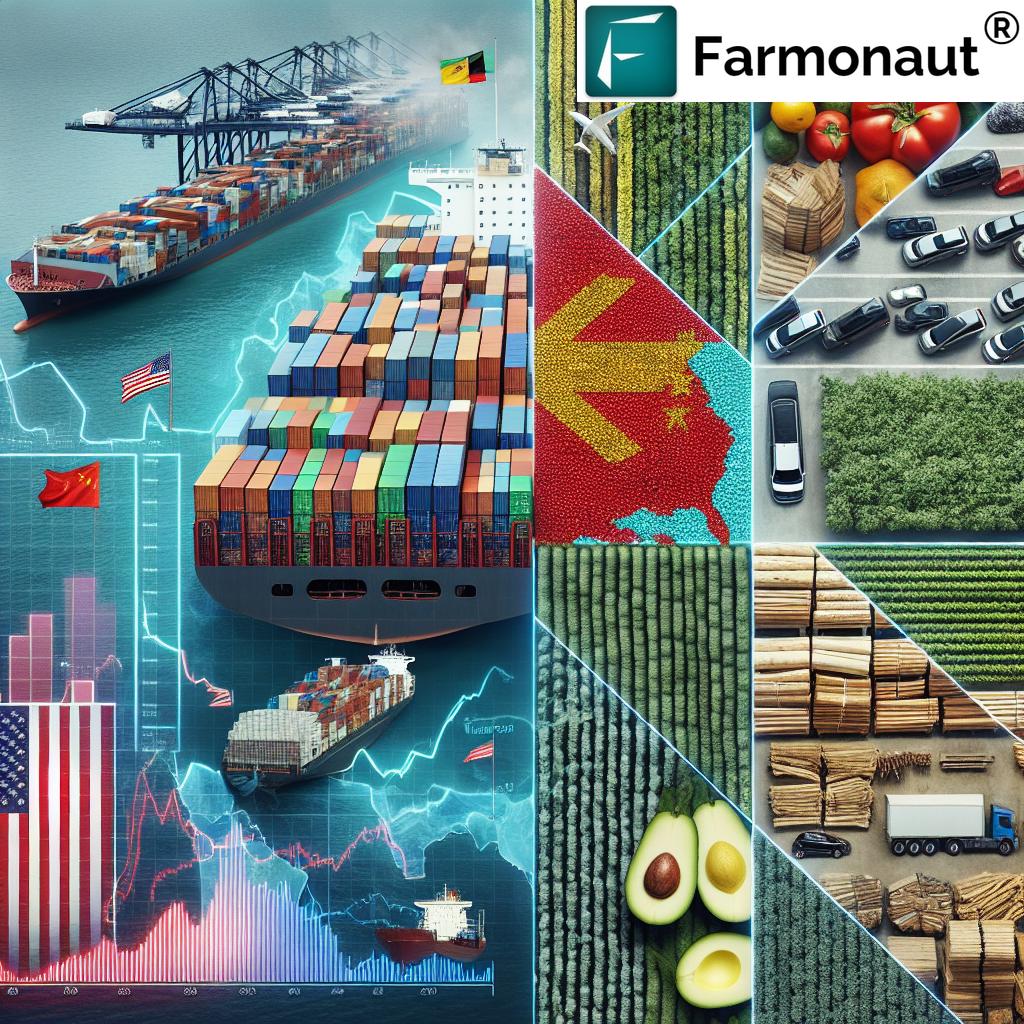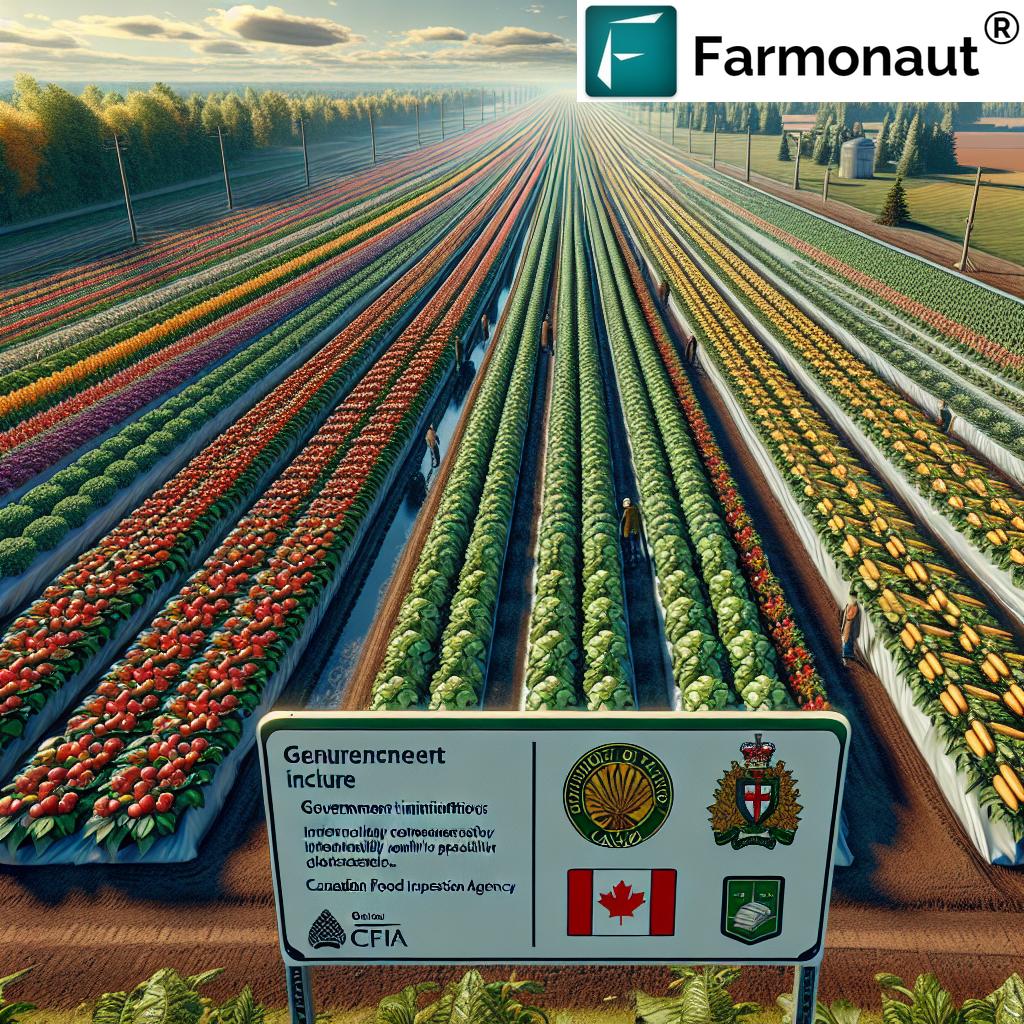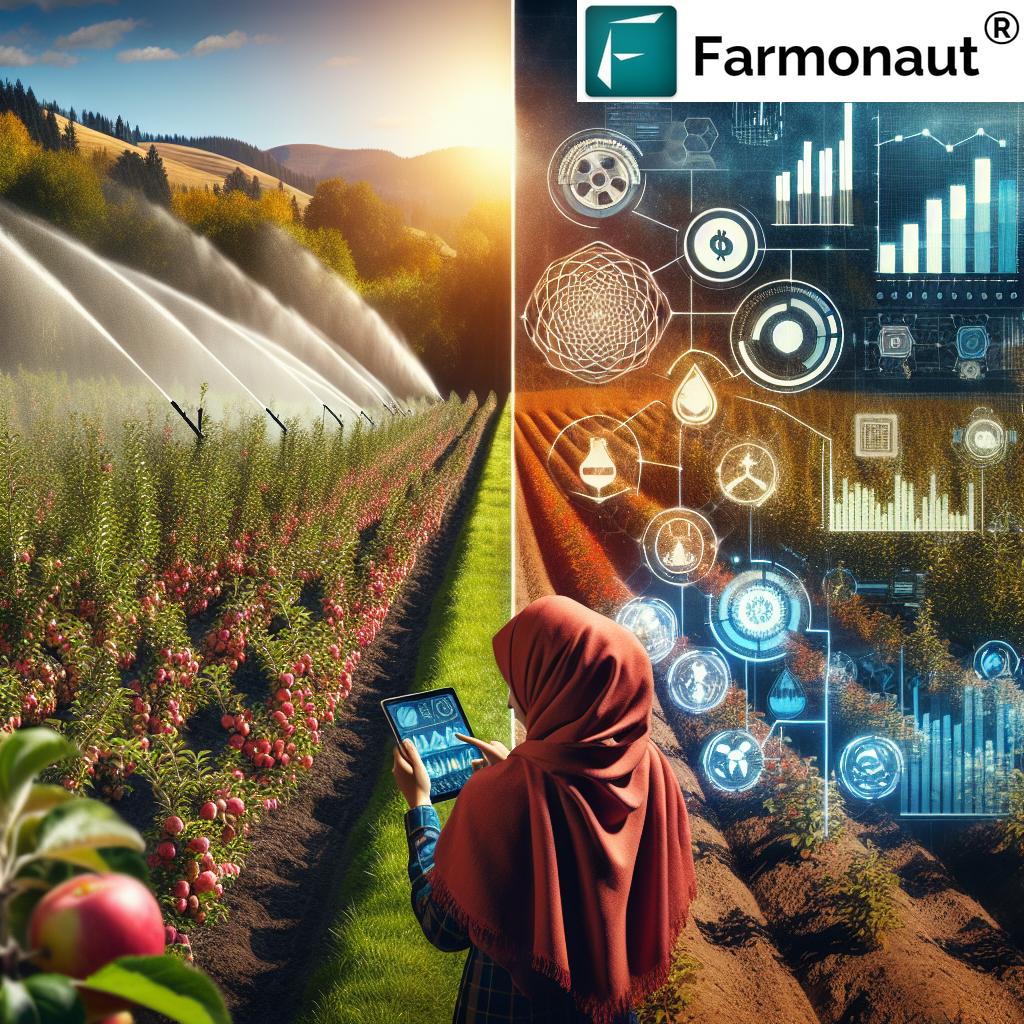Quebec Agriculture: 5 Powerful Trends Shaping Education and Commerce
“Over 42% of Quebec’s agricultural exports are showcased at international exhibitions, boosting global trade partnerships annually.”
Introduction: Why Quebec Agriculture Matters
Quebec stands as a dynamic center of agriculture in Canada, consistently driving bold innovations in both commerce and education. As the province’s agricultural landscape evolves—fueled by effective government boards, global exhibitions, and renowned educational institutions—Quebec’s farmers, educators, and agri-leaders shape not only the present, but also the future of food, sustainability, and economic prosperity.
We recognize how Quebec’s agricultural development holds deep historical roots while simultaneously spearheading ultra-modern trends—especially in precision agriculture, digital agriculture, and sustainable farm management. Driven by a confluence of heritage, science, government support, and international attention, Quebec agriculture offers a unique case study for anyone interested in the synergy of education, commerce, and technology within the province of Canada.
In this comprehensive guide, we explore the “5 Powerful Trends Shaping Education and Commerce” within Quebec’s dynamic agricultural sector. We analyze both historical and forward-looking forces: from the vision of early educators to the impact of modern international exhibitions. Our coverage is intended for educators, policymakers, business professionals, and all those invested in the future of Quebec and Canadian agriculture.
A Legacy of Agricultural Progress: The Quebec Educator and Political Figure
Our perspective on Quebec agriculture is profoundly informed by the life and achievements of a notable educator and political figure: born in Quebec City in 1836, a direct descendant of Joseph-François Perrault. His formative years, encompassing studies at the Petit Séminaire de Québec and further academic pursuit at the University of Durham and Royal Agricultural College in England as well as the esteemed École de Grignon in France, underscore the far-reaching influence of international agricultural education on Quebec’s trajectory.
Upon returning to the province of Canada in 1857, he sought to establish agricultural schools in Canada—a visionary move in an era when structured agricultural education in Quebec was still nascent. While he faced challenges due to limited student enrollment, his unflagging service as secretary for the Board of Agriculture of Lower Canada and as editor of the agricultural journal—Journal de l’agriculture et des travaux de la Chambre d’agriculture du Bas-Canada—reflected a lifelong commitment to knowledge dissemination and sectoral growth.
Elected to the Legislative Assembly for Richelieu in 1863, and later a catalyst in establishing the Montreal Chamber of Commerce in 1885, he also ensured Quebec was powerfully represented at international exhibitions—a vital function in amplifying both educational advancements and commercial outreach. His recognition as a chevalier in the French Legion of Honour testifies to his cross-border impact on modernizing agriculture throughout the province of Canada.
Quebec Agriculture: 5 Powerful Trends
Let us now delve into the contemporary and historical forces shaping Quebec’s agricultural sector. These trends coalesce at the intersection of education, technology, commerce, and governance—defining the success and sustainability of agriculture in the province.
1. Technological Integration in Quebec Agriculture
Technological advancement lies at the heart of agricultural transformation in Quebec. From satellite-based crop health monitoring to AI-powered advisory platforms, the embrace of innovative tools enables us to tackle challenges such as climate variability, resource efficiency, and market demands.
- The adoption of technologies such as Farmonaut’s multispectral satellite imagery empowers both individual farmers and large-scale agribusiness in Quebec to optimize yields and resource utilization.
- AI-driven decision support, like those featured in the Jeevn AI Advisory System, strengthens on-farm management and risk mitigation throughout the province.
- The Farmonaut API and developer documentation offer integration possibilities for local agricultural education institutions and research centers, supporting big data analytics and digital agriculture curriculum.
- Canadian agricultural organizations and Quebec government agencies use remote-sensing technologies for yield estimation, crop insurance validation, and environmental compliance, leveraging global best practices pioneered in places like England and France.
This ongoing integration of digital tools, including blockchain-based traceability (see product traceability solutions), propels Quebec agriculture into a new era—one marked by transparency, informed decision-making, and international connectivity.
2. Sustainable Practices in Quebec’s Agricultural Sector
Sustainability is not a mere buzzword in Quebec—it is an imperative. Our agricultural practices are increasingly shaped by policies and grassroots initiatives that emphasize responsible resource use, reduced carbon footprints, and preservation of biodiversity.
- Stakeholders from educational boards to local government organizations in Quebec advance sustainable agriculture curricula—often drawing on French agricultural education and local legacy to inspire future leaders.
- Platforms such as Farmonaut’s carbon footprint tracking tool allow farms and agri-businesses statewide to actively measure, manage, and reduce their environmental impact—a cornerstone for meeting international standards and provincial regulations.
- By embracing precision agriculture and real-time crop health analytics, Quebec’s educators integrate climate-smart agriculture into classrooms and field programs.
- Commercial entities–and even small-scale family producers—leverage technology to minimize chemical input, optimize irrigation, and comply with sustainability awards and certification programs promoted by agriculture boards throughout the province.
The result: a powerful blend of tradition and modernization, positioning Quebec as a reference in both food security and environmental stewardship across Canada and the global agricultural community.
3. International Exhibitions & Outreach
Quebec’s visibility on the world stage has been amplified over the decades by its robust participation in international exhibitions—with the Montreal Chamber of Commerce, government representatives, and key agricultural organizations playing pivotal roles.
- By presenting over 42% of Quebec’s exports at iconic international exhibitions in Canada and abroad, the province not only fosters trade relationships but also showcases innovation in agricultural products and technologies.
- Participation provides unique educational opportunities for Quebec-based students and professionals, linking curricula with real-time discoveries and global networking.
- This tradition—initiated long ago by Quebec’s early political leaders who represented the chamber and federal government at world fairs—cements our international reputation as a center for excellence in agriculture and commerce.
- For exporters, blockchain-enabled traceability solutions ensure product transparency in competitive international markets.
From sectoral trade shows to academic symposia, these exhibitions remain crucial for education, market expansion, and the future of agriculture government organizations in Quebec.
“Quebec’s government boards support more than 28,000 agricultural businesses, driving education and innovation across the province.”
4. Educational Reforms: The Pivot of Agricultural Schools in Canada
Education is the backbone of any thriving sector. The province of Canada agriculture story has been shaped by pioneers who invested in agricultural schools, curriculum development, and global academic exchange.
- Quebec’s educators have forged strong links with university agricultural programs England and French agricultural education (notably, the Royal Agricultural College and the École de Grignon), enriching local pedagogy with international best practices.
- New-age programs foster technological literacy, precision agriculture, and regenerative agriculture skills—ensuring students and professionals are ready for both local and global challenges.
- Government-backed reforms and investments have increased accessibility and quality across agricultural schools in Canada, positioning Quebec as a reference for other provinces and countries.
- Scholarships, partnerships with local and international entities, and integration of digital platforms (such as those offered by Farmonaut) prepare graduates for the data-driven agriculture sector.
As we reflect on the legacy of past leaders and the aspirations of tomorrow’s innovators, educational reform continues to be a decisive factor for prosperity in both Quebec’s rural and urban districts.
5. Government and Board Initiatives: Guiding Quebec Agriculture
The infrastructure supporting Quebec agriculture—government ministries, the Board of Agriculture of Lower Canada, and municipal/regional chambers—ensures robust policy, funding, and organizational support for both education and commerce.
- Government agencies provide sectoral forecasts, research funding, and extension services to foster innovation in the province’s key agricultural districts.
- The Chambre de Commerce du District de Montréal and allied organizations offer business development, trade promotion, and educational events for farmers and agri-entrepreneurs.
- Agriculture government organizations Quebec play a strategic role in ensuring that new regulations bolster transparency, environmental stewardship, and competitiveness.
- The enduring role of the agriculture board of Lower Canada, established through early political leadership, continues to inform sector-wide governance for modern agricultural commerce and education.
These government initiatives provide both stability and vision, enabling Quebec’s agri-ecosystem to adapt, grow, and compete on an international stage.
Trends Impact Matrix: Quebec Agriculture
| Trend Name | Estimated Adoption Rate in Quebec (2024, %) | Key Educational Impact | Key Commerce Impact | Notable Organizations/Events | Estimated Future Growth (2025-2030, %) |
|---|---|---|---|---|---|
| Technological Integration | 65% | Enhanced curriculum in digital agriculture, data analytics | Optimized crop yields, market adaptability | Farmonaut, University of Laval, API platforms | 80% |
| Sustainable Practices | 52% | Climate-smart agriculture modules, sustainability awards | Reduced inputs, improved international reputation | Quebec Agriculture Government, Farmonaut Carbon Tracking | 75% |
| International Exhibitions | 42% | Exposure to global trends and trade education | Market expansion, partnership development | Montreal Chamber of Commerce, SIAL Canada | 60% |
| Educational Reforms | 58% | Modernized programs, global university linkages | Skilled workforce, entrepreneurship | University of Durham, Royal Agricultural College England | 72% |
| Government Initiatives | 76% | Expanded extension services, board advisory roles | Financial stability, export policy development | Board of Agriculture of Lower Canada, Provincial Ministries | 85% |
Farmonaut & Digital Modernization
Modernizing Quebec agriculture means leveraging intuitive, scientifically-proven digital tools. Farmonaut is at the forefront, offering affordable precision agriculture—making satellite technology, blockchain, and AI accessible via web and mobile apps for all farm sizes and educational entities. Here is how these advanced services benefit the agricultural community:
- Real-time Crop Health Monitoring: Satellite imagery enables growers throughout Quebec’s farming districts to identify issues, optimize resources, and prevent crop losses.
- AI-Based Advisory Systems: With the Jeevn AI platform, students, professors, and field technicians receive actionable, customized guidance—strengthening both academic and commercial outcomes.
- Blockchain Traceability: Exporters and processors adopt blockchain traceability to enhance product transparency, satisfy international buyer requirements, and eliminate fraud in supply chains.
- Fleet and Resource Management: Tools like fleet management streamline machinery use, reduce costs, and enable detailed tracking for agri-enterprises in both rural and peri-urban Quebec districts.
- Carbon Footprinting: Environmental stewardship is enabled via carbon footprint monitoring, helping farm businesses comply with provincial and international standards.
- Loan and Insurance Assurance: With satellite-based validation, Quebec’s agricultural producers gain faster access to crop loans and insurance.
Benefits for Quebec’s Agriculture Stakeholders
- Farmers: Enhanced profitability, reduced risk, and actionable insights—democratizing precision agriculture for every rural community in the province.
- Educators & Students: Curricula integration, field research, STEM engagement, and digital experiments based on real farm datasets.
- Government: Policy evaluation, crop area estimation, subsidy targeting, and measuring impact of agricultural education reforms at regional and city levels.
- Commercial Entities: Supply chain transparency via blockchain traceability, boosting global commerce and compliance.
- NGOs and Research Organizations: Data-driven project design, grant monitoring, and environmental stewardship.
With scalable, modular services (see large scale farm management), Quebec’s entire agri-ecosystem—from family-run farms to large research hubs—gains digital empowerment for an increasingly competitive century.
Practical Resources for Quebec’s Agriculture Sector
- Farmonaut Platform: All-in-one digital management for Quebec’s farms, educators, and agri-businesses.
- Farmonaut Satellite & Weather API: Integrate precise, real-time agricultural data into your local or institutional projects with comprehensive developer documentation here.
- Carbon Footprinting Service: Measure and reduce your farm or business’s environmental impact in Quebec.
- Blockchain-based Traceability: Ensure supply chain integrity for agriculture exports and processors in the province and global markets.
- Crop Loan and Insurance Validation: Accelerate access to agriculture finance and insurance in Quebec.
- Fleet Management Tools: Manage agricultural logistics, reduce operational costs, and ensure compliance across city and rural districts.
FAQ: Quebec Agriculture, Education & Commerce
What are the most important crops in Quebec’s agriculture sector?
The province produces a diverse range of crops—including grains (corn, wheat, soybeans), fruits (apples, berries), vegetables, and specialty products (maple syrup, dairy). These contribute significantly to both domestic consumption and international export.
How do agricultural schools in Quebec and Canada contribute to the industry?
Quebec’s agricultural schools and universities, often patterned after university agricultural programs in England and French agricultural education models, equip students with both technical skills and digital literacy. These institutions support innovation, applied research, and business leadership across the sector.
What role do international exhibitions play for Quebec agriculture?
International exhibitions offer Quebec’s producers and educators an opportunity to showcase advancements, access new markets, forge global partnerships, and benchmark their innovations against the best in the world. This elevates both the province’s commercial profile and educational standards.
How do government boards support agricultural development across Quebec?
Government and agriculture boards design policies, offer funding, facilitate research, and provide extension services to foster innovation and sustainability within the province. Their legacy dates back to the Board of Agriculture of Lower Canada, with continued influence over curricula, regulation, and commerce.
What digital platforms are available to Quebec growers and educators for precision agriculture?
Solutions like Farmonaut offer satellite data, AI-based advisories, blockchain traceability, resource management, and more—accessible via web, Android, and iOS in English and French.
How can Quebec’s agricultural sector further enhance sustainability?
By integrating carbon footprint tracking, adopting sustainable practices in curriculum and daily operations, leveraging digital tools, and pursuing government-backed certifications, Quebec’s sector can lead Canada in climate-smart agriculture.
Where can I access more resources for farm modernization in Quebec?
Refer to the Farmonaut platform, large scale farm management module, and API suite for digital modernization.
Conclusion: Forging Quebec’s Agricultural Future
Quebec’s agriculture sector is a living testament to visionary education, technological adaptation, and engaged governance. Our analysis affirms that the alliance of digital modernization, international outreach, and robust educational reform powers Quebec’s continuous leadership within Canada and on the world stage.
By building on this legacy—honoring pioneers who connected Quebec City, Montreal district, and the wider province to England, France, and beyond—we uphold a tradition of excellence while equipping future generations for the challenges and opportunities ahead. Whether through advanced platforms like Farmonaut, internationally-linked educational programs, or collaborative government and commerce boards, Quebec’s rural and urban communities are positioned to thrive, innovate, and inspire.
We invite all stakeholders—students, educators, policymakers, and agri-professionals—to contribute to this vibrant ecosystem, continuing to make Quebec agriculture a force for good in both local and global contexts.






